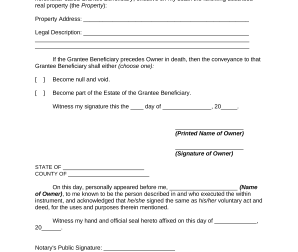Alabama Lemon Law for Used Cars and What You Need to Know
The Alabama Lemon Law is designed to protect consumers who purchase defective vehicles. This law ensures that buyers can seek remedies if their new or used cars repeatedly fail to meet quality and performance standards. Lemon laws vary from state to state, but Alabama’s law has specific provisions that apply to used cars. Understanding these laws can help you know your rights and the steps you can take if you find yourself with a lemon.
What is a Lemon Car

A lemon car is a vehicle that has significant defects that impair its use, safety, or value. In Alabama, a car is considered a lemon if:
- The vehicle has a defect that substantially impairs its use, safety, or value.
- The defect is reported within the warranty period.
- The manufacturer or dealer has had multiple attempts to fix the problem but has failed.
Common defects that can make a car a lemon include:
- Engine problems
- Transmission issues
- Electrical system failures
- Brake defects
It’s essential to document all defects and repair attempts to support your case if you need to file a claim.
Eligibility Criteria for Used Cars

Not all used cars are eligible for protection under Alabama’s Lemon Law. To qualify, a used car must meet specific criteria:
- The car must have been purchased or leased from a licensed dealer in Alabama.
- The vehicle must have a warranty at the time of purchase.
- Defects must be reported within one year of purchase or the duration of the warranty, whichever comes first.
- The car must have undergone at least three repair attempts for the same defect.
It’s important to keep all documents related to the purchase and repairs, as this information will be crucial if you need to make a claim.
Steps to Take When Dealing with a Lemon
If you suspect that your car is a lemon, it’s essential to act quickly and follow a series of steps to protect your rights. The sooner you address the issue, the better your chances of a successful resolution. Here’s what you need to do:
- Identify the Problem: Make a detailed note of the defects, including when they occur and how they affect the car’s performance.
- Contact the Dealer: Reach out to the dealership where you bought the car. Explain the issues clearly and ask for a repair.
- Keep Records: Document all communications, repair attempts, and any expenses related to the defects.
- Allow for Repairs: The dealer has the right to attempt repairs, so be patient and give them a fair chance to fix the problem.
- Consult an Attorney: If the dealer cannot resolve the issue after a reasonable number of attempts, consider speaking with an attorney who specializes in Lemon Law cases.
By following these steps, you can ensure that you’re taking the right actions to address the lemon issue effectively.
Documentation You Need to Keep
Proper documentation is crucial when dealing with a lemon car. Keeping thorough records will support your case if you need to file a claim. Here’s a list of important documents to maintain:
- Purchase Agreement: Keep the original sales contract that details the terms of your vehicle purchase.
- Warranty Information: Maintain a copy of the warranty that came with the car, as it outlines your rights.
- Repair Records: Document every repair attempt, including dates, services performed, and parts replaced.
- Correspondence: Save all emails and letters exchanged with the dealer and any repair shops.
- Expenses: Keep receipts for any related expenses, such as towing or rental cars.
Having this documentation ready will make it easier to navigate the process and strengthen your Lemon Law claim.
How to File a Lemon Law Claim
If you’ve followed the necessary steps and your vehicle still isn’t functioning properly, it may be time to file a Lemon Law claim. Here’s a straightforward guide on how to do it:
- Gather Your Documentation: Collect all relevant documents you’ve maintained, such as repair records, purchase agreements, and warranty details.
- Check the Timeframe: Ensure you’re filing within the legal time limits set by Alabama’s Lemon Law. You typically have one year from the date of purchase or the end of the warranty.
- Consult an Attorney: While you can file a claim on your own, having an attorney experienced in Lemon Law can greatly improve your chances of success.
- File the Claim: Submit your claim to the manufacturer or their designated representative. Include all your gathered documents and a detailed explanation of the issues.
- Wait for a Response: The manufacturer has a specific timeframe to respond to your claim, usually within 30 days. Be prepared to negotiate.
If the manufacturer denies your claim or fails to respond satisfactorily, your attorney can help you escalate the issue, potentially leading to arbitration or court proceedings.
Possible Remedies Under Alabama Lemon Law
If you find yourself dealing with a lemon car in Alabama, it’s important to know what remedies are available to you. The Lemon Law aims to provide relief for consumers who purchase defective vehicles, ensuring that you have options to rectify the situation. Here’s a rundown of possible remedies:
- Refund: You may be entitled to a full refund of the purchase price, including taxes and registration fees, minus a reasonable deduction for your use of the vehicle.
- Replacement: If your vehicle cannot be repaired after several attempts, you may receive a replacement vehicle of similar value.
- Repair Costs: If you’ve incurred costs related to repairs, you might be reimbursed for those expenses, including towing fees and rental car costs.
- Attorney Fees: In some cases, you can recover the attorney fees incurred while pursuing your Lemon Law claim, making it easier to seek legal help.
Understanding these remedies helps you know what to expect as you navigate your Lemon Law case. It’s essential to act promptly and gather all necessary documentation to support your claim.
Common Misconceptions About Lemon Law
Many people have misunderstandings about Lemon Laws, which can lead to confusion and frustration. Let’s clear up some common misconceptions about Alabama’s Lemon Law:
- Lemon Law Only Applies to New Cars: While Lemon Laws primarily protect new car buyers, Alabama’s law also covers used cars under certain conditions.
- All Defects Qualify: Not every problem qualifies as a “lemon.” The defect must substantially impair the vehicle’s use, safety, or value.
- You Must Go to Court: Many claims can be resolved without going to court. Most manufacturers prefer to settle claims directly.
- You Have Unlimited Time to File: There are strict time limits for filing a claim, usually within one year from the purchase or warranty expiration.
By understanding these misconceptions, you can better navigate the Lemon Law process and protect your rights.
FAQs About Alabama Lemon Law
Many people have questions about Alabama’s Lemon Law, especially if they are dealing with a lemon car. Here are some frequently asked questions to help clarify the law:
- What is the Lemon Law? Alabama’s Lemon Law protects consumers from defective vehicles by providing remedies if a vehicle fails to meet quality standards.
- How long do I have to file a claim? You typically have one year from the date of purchase or the expiration of the warranty to file a claim.
- What qualifies as a lemon? A lemon is a vehicle that has significant defects, requiring multiple repair attempts within the warranty period.
- Can I get a refund or replacement? Yes, if your car qualifies as a lemon, you may be entitled to a refund or a replacement vehicle.
- Do I need a lawyer to file a claim? While not required, consulting with a lawyer who specializes in Lemon Law can improve your chances of a successful claim.
These FAQs provide a good starting point for understanding your rights under Alabama’s Lemon Law and what steps you can take if you find yourself with a lemon car.
Conclusion
Dealing with a lemon car in Alabama can be frustrating, but understanding your rights and the remedies available to you can make the process smoother. The Alabama Lemon Law is designed to protect consumers from defective vehicles, whether new or used, and provides various options for resolution. By documenting your experiences, knowing the eligibility criteria, and following the appropriate steps, you can effectively navigate the claims process. If you believe you have a lemon, don’t hesitate to seek advice from a legal professional who specializes in Lemon Law to ensure your rights are protected. Remember, you have options, and help is available.


